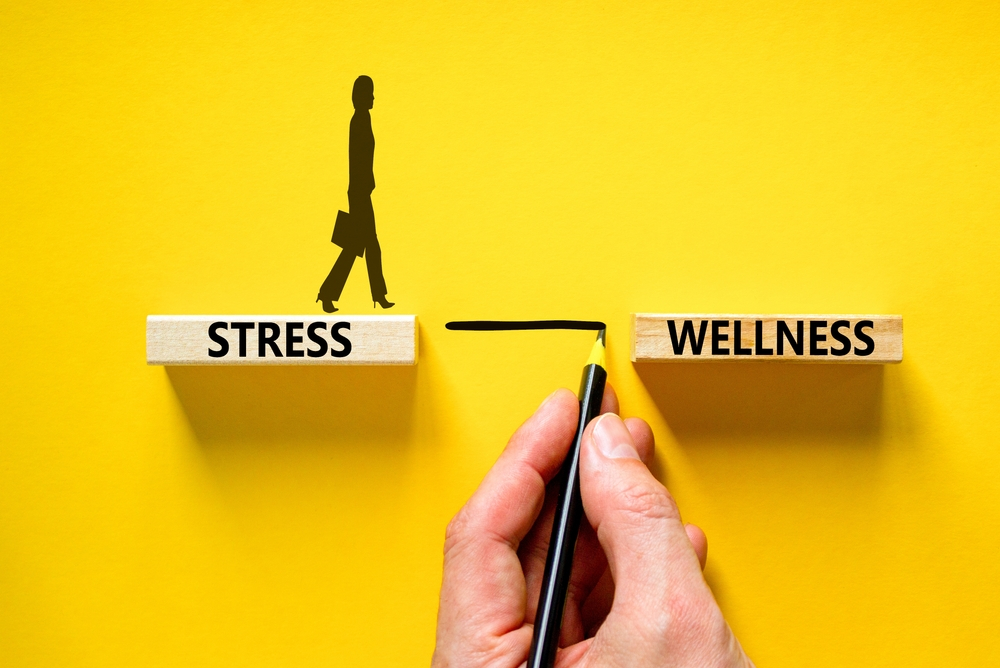Balancing Blood Sugar: Nutrition Strategies for Stress Management

Table of Contents
Picture this: You’re stressed out and reaching for a quick sugar fix to help ease the tension. But did you know that the foods you eat can have a major impact on your blood sugar levels and your body’s ability to manage stress? In this insightful article, we’ll explore how nutrition can play a vital role in balancing blood sugar and reducing stress. Let’s uncover the powerful connection between what you eat and how you feel, and discover practical strategies for optimizing your well-being.
Understanding Blood Sugar and Stress

Imagine your body as a busy city where the hustle and bustle is your daily stress, and the traffic flow is your blood sugar. Just like how unpredictable traffic can cause chaos in a city, unexpected changes in blood sugar levels can turn your body’s stress levels upside down. In this section, we’ll dive into how stress affects your blood sugar and why keeping them both in check is key to feeling awesome every day.
The Physiological Link Between Stress and Blood Sugar Levels
When life throws a curveball, our bodies react in a wave of responses and one of the immediate reactions is the change in our blood sugar levels. Think of it as your body’s own internal alarm system—when you’re stressed, your body releases adrenaline and cortisol. These hormones give you a burst of energy, which includes releasing stored glucose from your liver into your bloodstream.
However, this neat little evolution trick is based on ancient times when stress usually meant physical danger. Now, if you’re stressing out over an exam or a work deadline, you don’t really need that extra sugar floating around in your blood. Over time, this extra glucose can lead to higher sugar levels if it’s not used, and if you’re constantly under stress, it can be even more difficult to keep those sugar levels in check.
The role of cortisol in blood sugar regulation
Imagine your body is like a car, and cortisol is the gas pedal that can speed things up when you’re in stressful situations. Cortisol, often called the stress hormone, is made in our adrenal glands, those tiny hats sitting on top of our kidneys. When we’re stressed, our bodies hit the gas pedal and cortisol levels soar. This hormone tells our liver to make more sugar, the fuel our cells use for energy. It’s like our body is preparing us to fight or run away, even if we’re just sitting at a desk or stuck in traffic.
But what if your body keeps hitting the gas pedal even when you’re not in danger? If we’re always stressed, our cortisol level stays high, and our blood sugar can get all out of whack. That’s when problems can start. Kind of like if you kept revving your car’s engine at every red light, you might end up with some costly engine trouble. Keeping calm can help keep your body’s gas pedal and blood sugar in balance, like a smooth and easy drive to your favorite chill-out spot.
Nutrition for Balancing Blood Sugar

Imagine your body as a finely-tuned machine that thrives on quality fuel. What you eat directly influences your body’s ability to react to stress. Just as a car runs smoothly with the right kind of petrol, your body maintains its equilibrium with nutritious food choices. Let’s dive into the relationship between diet and blood sugar control and unveil how certain foods can keep those levels in check, helping you navigate through stress with ease.
Complex carbohydrates and their impact on blood sugar
Complex carbohydrates are the unsung heroes when it comes to maintaining steady blood sugar levels. Unlike simple carbs, which cause quick spikes in blood sugar, complex carbs break down slowly. This means they provide a more gradual release of energy over time. It’s the difference between a lightning bolt of sugar hitting your bloodstream and a gentle, rolling wave.
You’ll find complex carbohydrates in foods like whole grains, beans, fruits, and veggies. By choosing these nutrient-dense options, you’re also getting a good dose of fiber. Fiber helps slow the digestion of carbs even further, making sure that your energy levels stay consistent. Sticking with complex carbs is a smart move for keeping those sugar levels balanced, especially if you’re trying to keep stress under control.
The importance of fiber-rich foods in blood sugar stability
Eating fiber-rich foods is like giving your body a secret weapon against sugar spikes. Imagine you’re on a roller coaster: blood sugar without fiber is a wild ride, with lots of ups and downs. Now, throw in some fiber, and it’s more like a gentle, rolling train ride—much more stable. Fiber slows down how fast your body absorbs sugar, which helps keep your energy levels steady throughout the day.
By picking foods with plenty of fiber, like beans, whole grains, and veggies, you’re not just filling your belly. You’re helping to manage the sugar in your bloodstream, and that can make a huge difference when it comes to your mood and stress levels. These are foods that work overtime to keep you feeling calm and collected, so next time you’re about to face a stress-fest, reach for that fiber!
Healthy fats and their role in blood sugar management
When we hear “healthy fats,” it’s not just about adding a bit of olive oil to your salad. These friendly fats can be your blood sugar’s best pals. The secret lies in how they slow down digestion, which means that glucose is released more gradually into your bloodstream. This avoids those pesky spikes and crashes that you might have after eating something high in sugar.
Some superstars in the healthy fat category include avocados, nuts, seeds, and fatty fish like salmon. Omega-3 fatty acids, particularly, are like the champions of the fat world, supporting not just blood sugar balance but also heart and brain health. So when you’re planning your meals, adding a touch of healthy fat can keep your energy steady and your stress levels in check. Remember, it’s all about keeping that sugar on an even keel – and healthy fats are a delicious way to do just that!
Lifestyle Habits for Stress Management

Imagine feeling super chill and having energy that lasts all day. That’s what can happen when you mix the right daily habits with smart eating choices. We’ll take a look at how simple stuff like moving your body, getting enough Zs, and chilling out in cool ways can keep your sugar levels happy and knock out stress. These habits aren’t just good on paper; they’re game-changers for staying cool, calm, and collected. Let’s dive into how shaking up your routine can mean big wins for your well-being.
Regular Exercise and Its Impact on Blood Sugar and Stress
Believe it or not, getting your body moving can do wonders for both your mood and your blood sugar levels. Regular physical activity helps your muscles soak up sugars from your blood, which can lower blood glucose levels and decrease the need for insulin. This isn’t just a quick fix – over time, consistent exercise can improve insulin sensitivity, which means your body can manage sugar better even when you’re not working out.
But exercise isn’t just about sugar – it’s a stress buster, too. When you exercise, your brain releases chemicals like endorphins and serotonin that help you feel good. It’s like hitting two birds with one stone: you’re keeping your blood sugar in check and melting away the stress of the day. So, lace up those sneakers, and give your body (and mind) the boost it deserves!
Quality Sleep as a Fundamental Factor in Blood Sugar Balance and Stress Reduction
Ever heard the saying “catching some zzz’s” is good for your health? Well, it’s not just a catchy phrase. Getting enough quality sleep is super crucial for keeping your blood sugar nice and steady. When you’re rested, your body does a better job managing the hormones that affect your blood sugar. Plus, sleeping like a baby can calm that buzz of stress zipping around your brain.
Think of a good night’s sleep as your body’s secret weapon to fight stress. When you drift off into dreamland, your body gets busy repairing and restoring itself, and that includes sorting out your blood sugar levels. Skimp on sleep, and you might find your blood sugar on a rollercoaster, which can make stress feel like a ten-ton weight on your shoulders. So, remember, snoozing well equals less stress and a happy, balanced blood sugar level.
Stress-Reducing Techniques and Their Influence on Blood Sugar Stability
When we’re zapped by stress, our bodies react in ways that can mess with our blood sugar levels. That’s because stress hormones like cortisol kick in, and they can cause our blood sugar to shoot up. But, hey, there’s good news! By digging into stress-busting activities, we can help keep our blood sugar in a chill zone.
Breathing exercises, for example, are like a secret weapon against stress. Deep, slow breaths can calm the storm in our minds and bodies, helping to lower cortisol levels. This simple shift can steady our blood sugar, too. Meditation is another ace up our sleeve. It’s all about finding that zen space where our body can relax and our mind can clear out the clutter, which is great for keeping blood sugar on an even keel.
Let’s not forget about yoga or gentle stretching. These are like a double-shot of calm for both the mind and the bod. They ease tension and help our muscles let go of stress. Plus, they’re wonderful for navigating blood sugar back to steady ground. The smooth moves and focused breathing work together to create a blissed-out state where high blood sugar doesn’t stand a chance. With these techniques in your daily routine, you’re not just managing stress; you’re also taking the reins on your blood sugar stability. Isn’t that sweet?
By blending these techniques into our lives, we’re not just hitting the pause button on stress — we’re potentially keeping our blood sugar as stable as a table. Now that’s a balancing act worth mastering!
Practical Tips for Balanced Nutrition and Stress Relief

Navigating the world of nutrition can be a bit tricky when trying to keep stress at bay. But with a few simple tweaks to your diet and eating habits, you can create an environment in your body that’s primed for managing the hustle and bustle of life. Let’s dig into some straightforward and actionable tips that’ll help you steer your nutrition in a direction that supports a calm and steady mood throughout your day.
Meal Planning and Mindful Eating for Stable Blood Sugar Levels and Stress Reduction
When it’s about keeping your cool and maintaining your energy, how you fuel your body makes a huge difference. Meal planning isn’t just for those with an eye on their waistline—it’s a savvy move for anyone looking to lessen those frazzled feelings. By choosing wholesome foods and setting up a consistent eating schedule, your body learns when to expect fuel, keeping those blood sugar levels on an even keel. This means no more energy crashes that leave you reaching for the nearest sugary snack.
Now, pair that strategy with mindful eating. This is all about engaging with every bite. It means slowing down, appreciating your food, and paying attention to how you feel. Are you really hungry, or just bored? Or maybe stress is knocking at your door? Eating mindfully helps you recognize your body’s signals, so you’re not snacking on autopilot, which can make blood sugar levels swing like a pendulum. It’s amazing what a little focused dining can do for your stress levels, and it starts with being mindful at the table.
Hydration and its connection to blood sugar balance and stress resilience
Staying well-hydrated isn’t just about quenching your thirst; it’s a key player in maintaining your cool when the heat is on. Water can act like a superhero for your blood sugar levels, helping your body’s systems flow more smoothly. When you’re dehydrated, your blood gets a bit thicker and more concentrated with glucose, which can cause those numbers to spike, nudging stress levels up along with it.
Drinking enough water can be a simple yet effective tactic to help stabilize blood sugar throughout the day and keep tension at bay. Try swapping out sugary drinks for a glass of water—your body will thank you with a calmer response to stress. Remember, when you’re hydrated, your body and mind work together like a well-oiled machine, ready to tackle whatever comes your way with a level head.
Supplements for Blood Sugar Support in Times of Stress
During those periods when stress cranks up the intensity, your body may need some backup to keep things steady. That’s where supplements come into play, offering a helping hand to maintain your blood sugar on an even keel. Think of them like a cool buddy who steps in to calm the chaos at a rowdy party.
Some go-to supplements, like chromium and magnesium, are like the dynamic duo for sugar support. Chromium gets a thumbs-up for making your body’s insulin work better, while magnesium chills out those blood sugar spikes and drops. They’re not just good pals, they’re great for keeping your body’s sugar levels more in harmony with your life’s tempo.
But don’t forget about omega-3 fatty acids – these are like the zen masters of the fatty world. Found in fish oil, they may help to lower inflammation and contribute to overall better metabolic health, making your blood sugar say, “Hey, I can handle this stress thing.” Just remember: before you invite any of these supplements to your personal wellness party, talk to a healthcare professional to make sure they fit with your unique tune.
Creating A Balanced Approach

When it comes to keeping your cool and steadying your energy levels, there’s no one-size-fits-all solution. Your unique body and lifestyle mean you need a personal touch in your nutrition and stress-busting techniques. In this segment, we’ll chat about finding that sweet spot where yummy treats meet health-conscious choices, all aimed at helping you maintain your zen and keep your blood sugar in check for the long haul. Let’s dive into creating an approach that fits like a glove.
The Importance of Individualization in Nutrition and Stress Management
Everyone’s body responds differently to food, and stress can have a variety of effects on each person. That’s why it’s key to recognize that there is no one-size-fits-all solution for managing blood sugar levels and stress. To truly support your own health, you must tailor your nutritional choices to fit your unique needs, lifestyle, and taste preferences.
Creating a personal nutrition plan takes into account factors like your age, activity level, any existing health conditions, and even your stress triggers. When you eat in a way that caters to your individual body, you’re more likely to maintain stable blood sugar levels. This balance is critical for helping your body to cope with stress more effectively. Making the effort to understand and listen to your body is not just a step towards better health – it’s a step toward empowerment and peace of mind.
Balancing Treats with Health-Focused Choices for Long-Term Blood Sugar Stability and Stress Resilience
So, you have a sweet tooth, but you also want to keep your blood sugar steady and stress levels in check? You’re not alone. It’s all about finding the right balance between enjoying your favorite treats and making choices that support your health.
Imagine your diet as a seesaw. On one side, you’ve got nutrient-packed foods—lots of veggies, whole grains, and lean proteins. On the other, there’s the sugary, tempting snacks that make your taste buds dance. Now, the trick is to keep that seesaw level. A square of dark chocolate here or a scoop of ice cream there won’t hurl your blood sugar into chaos if the rest of your diet is rich with foods that keep your glucose in check. But hey, moderation is key—**balance the occasional indulgence with consistent, healthful eating habits**, and you’ll be on your way to feeling more in control and less stressed.
Cultivating Mindful Eating for Stress Resilience

Sometimes, we eat in a hurry and hardly notice what we’re munching on. Mindful eating is about slowing down and really experiencing our food. It’s a simple yet powerful tool that can help stabilize our energy levels and soothe our frayed nerves. By focusing on the present moment and the flavors, textures, and smells of our meal, we not only enjoy our food more, but we can also make better choices for our well-being. This careful attention to what we eat is a cornerstone of managing our stress and keeping our blood sugar in check.
The Art of Savoring and Mindful Consumption for Stress Reduction
Believe it or not, the simple act of enjoying your meals can be a powerful tool against stress. Savoring is all about taking the time to truly experience and appreciate the flavors, textures, and smells of your food. It’s a form of mindfulness that not only makes eating more enjoyable but can also help keep your blood sugar levels steady.
When you eat mindfully, you’re less likely to gobble down your meal without paying attention to your body’s signals. This means you’re more in tune with when you’re full, helping to prevent overeating and the sugar spikes that can come with it. Plus, slower eating means your body has the time it needs to process that you’re getting nourishment, which can make you feel more satisfied and less frazzled.
Mindful Snacking as a Tool for Blood Sugar Balance and Stress Management
Think about the last time you grabbed a snack. Were you truly hungry, or just bored or stressed? Mindful snacking is all about tuning into your body’s needs and choosing snacks that help keep your energy steady and your emotions in check.
It starts with awareness. Before you snack, pause and assess how you feel. Are you seeking comfort, or is it real hunger? If it’s hunger, opt for snacks that offer a good mix of nutrients. Foods like almonds or a small apple with peanut butter provide fiber, healthy fats, and protein to keep your blood sugar stable, rather than the rollercoaster ride sugary snacks can cause. A stable blood sugar level means less stress on your body and mind, helping you stay calm and focused.
Empower Your Well-being with Nutrition and Stress Management

Imagine taking control of your life not just by what you do, but also by what you eat. It’s all about making choices that boost your energy and keep your mind clear when things get tough. Food isn’t just fuel; it’s a key player in your body’s stress response system. By mixing smart nutrition with positive lifestyle habits, you give yourself the upper hand against stress. Say hello to a happier, healthier you—strong and steady, no matter what life tosses your way.
Taking Proactive Steps for Blood Sugar Balance and Stress Reduction
When it comes to keeping your cool and maintaining even blood sugar levels, being proactive is key. Start by planning your meals ahead of time; this isn’t just about what you’ll eat, but also when. Regular, balanced meals help prevent the roller coaster of highs and lows in your blood sugar, which can trigger stress.
Incorporating regular physical activity into your routine can do wonders too. Exercise isn’t just about keeping in shape; it’s a natural stress-reliever that helps regulate blood sugar. It can be as simple as a brisk walk or a fun dance class—anything that gets your heart pumping! Remember, your well-being takes center stage, so treat it like the star it is.
The influence of a positive mindset on nutrition, blood sugar, and stress resilience
Ever heard the saying, “You are what you eat”? Well, it turns out, you are also how you think about what you eat. A positive attitude can play a huge role in the way your body handles food, especially when it comes to blood sugar and stress levels.
Keeping a sunny outlook doesn’t just make you feel good; it directly influences your food choices and the way your body processes those choices. When you’re upbeat and hopeful, you’re more likely to reach for nourishing foods that stabilize blood sugar rather than sugary snacks that spike it. Plus, your body can actually digest food more efficiently when you’re relaxed and happy, so you get more out of your meals. A positive mindset can be a powerful tool for managing stress, keeping blood sugar in check, and keeping you bouncing back no matter what life throws your way.
Conclusion
By harnessing the power of nutrition and mindful lifestyle choices, you can harmonize your blood sugar levels and forge a path to stress resilience. It’s time to elevate your well-being and embrace a balanced approach that leaves you feeling nourished, energized, and ready to conquer the demands of daily life. Let’s set sail on a journey toward balanced blood sugar and stress-free living!
FAQs
Q1: How can I lower my blood sugar and stress? A: To effectively lower blood sugar and manage stress, consider adopting a balanced lifestyle. Regular physical activity, a well-balanced diet rich in whole foods, adequate sleep, and stress management techniques such as meditation or deep breathing exercises can contribute to better blood sugar control and reduced stress levels.
Q2: What are the dietary strategies to control blood sugar? A: To control blood sugar through diet, focus on consuming complex carbohydrates, fiber-rich foods, and lean proteins. Opt for whole grains, fruits, vegetables, and legumes while limiting refined sugars and processed foods. Monitor portion sizes, spread meals throughout the day, and stay hydrated. Consult with a healthcare professional or a registered dietitian for personalized advice.
Q3: What is a good nutritional strategy for coping with stress? A: A balanced diet is crucial for stress management. Include foods rich in antioxidants, such as fruits and vegetables, omega-3 fatty acids found in fish, and complex carbohydrates like whole grains. Avoid excessive caffeine and sugar intake. Adequate hydration is also essential. Additionally, consider consulting a nutritionist for personalized recommendations.
Q4: How does stress affect blood sugar? A: Stress triggers the release of hormones like cortisol and adrenaline, which can lead to an increase in blood sugar levels. This is part of the body’s “fight or flight” response. Prolonged or chronic stress may contribute to insulin resistance, affecting blood sugar regulation. Managing stress through relaxation techniques can help mitigate its impact on blood sugar.
Q5: Can sugar trigger stress? A: Excessive sugar intake can contribute to stress. Consuming sugary foods and drinks can lead to rapid spikes and crashes in blood sugar levels, affecting mood and energy levels. Choosing complex carbohydrates and avoiding excessive sugar can contribute to more stable blood sugar levels and, consequently, a more stable mood.
Q6: Does high blood sugar cause anxiety? A: High blood sugar levels may contribute to feelings of anxiety. Fluctuations in blood sugar can affect neurotransmitters and energy levels, potentially influencing mood. Consistent blood sugar management through a balanced diet, regular physical activity, and stress reduction techniques may help alleviate anxiety symptoms associated with high blood sugar. If concerns persist, consult with a healthcare professional.
Useful resources
- Physical Activity and Stress:
- Check reputable health websites like the American Heart Association: American Heart Association
- Dietary Strategies for Blood Sugar Control:
- Explore information on the American Diabetes Association website: American Diabetes Association
- Nutritional Strategies for Stress Management:
- Find advice from registered dietitians and health experts on WebMD: WebMD
- Stress and Blood Sugar Connection:
- For information on the physiological connection between stress and blood sugar, you may want to explore resources on PubMed, a repository of scientific articles: PubMed








I don’t think the title of your article matches the content lol. Just kidding, mainly because I had some doubts after reading the article.
Can you be more specific about the content of your article? After reading it, I still have some doubts. Hope you can help me.
of course what is your question
I don’t think the title of your article matches the content lol. Just kidding, mainly because I had some doubts after reading the article.